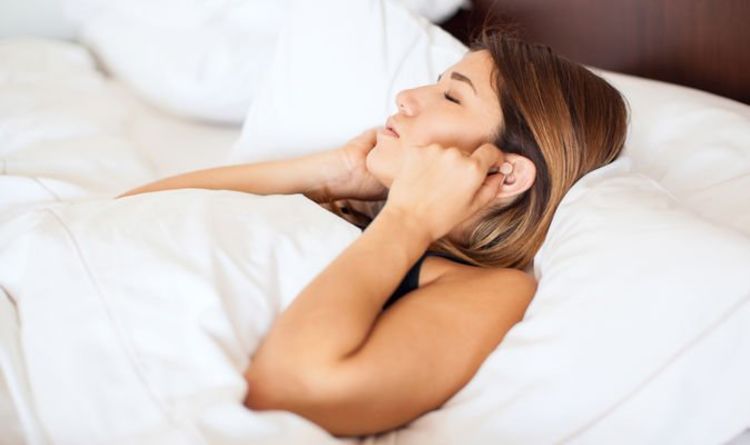Cheryl promotes vitamins to help with sleep on Instagram
We use your sign-up to provide content in ways you’ve consented to and to improve our understanding of you. This may include adverts from us and 3rd parties based on our understanding. You can unsubscribe at any time. More info
Earplugs are designed to be inserted in the ear canal to protect the user’s ear from the effects of loud noises. They have been shown to be highly effective at blocking out noise which for light sleepers is a God sent. However, sleeping in them every night could pose a danger and does run a risk of permanent damage.
When asked if earplugs can be damaging to one’s ear, Hussain Abdeh, pharmacist answered: “Sleeping with earplugs in is a generally safe thing to do. However, if used regularly over long periods they can cause the earwax to be pushed further back into your ears.
“Over time, this can cause the wax to build up, which can lead to problems like tinnitus and hearing loss.
“This issue can be treated by a doctor, who will be able to remove the ear wax by syringing the ears. Alternatively, the wax can sometimes be softened by using ear drops prescribed by your doctor.”

Regarding the possible dangers, Hussain warned: “Infection can occur due to the growth of earwax bacteria on the earplugs if you use the same pair frequently.
“It is important to get an ear infection treated swiftly if you develop one, as not doing so can lead to hearing damage or even hearing loss in some cases.
“You should wash your hands before and after rolling them and inserting them into your ear.
“Doing so stops external bacteria from getting onto your earplugs before they are inserted into your ears and stops you from carrying around any bacteria from the ears after you have inserted them.”
When it comes to other possible medical problems caused by earplug use, Dr Jeff Foster from H3Health said: “They are known to increase the risk of certain medical problems.
“In particular, a common condition known as otitis externa.
“This is where the ear canal becomes painful, inflamed, and often infected.
“There are many causes for this the presence of a foreign body that can scrape the ear canal greatly increases the chances of this happening. This is the same reason we tell people not to put cotton buds in their ears.
“In addition, how far you put the ear plug can affect safety – so normal insertion reduces hearing by about 10 decibels but if you really want to block out noise, inserting it more deeply can block out 25 decibels but poses two risks.

“Firstly, it might get stuck, and secondly it could touch the tympanic membrane (ear drum).
“If this happens you get acute hearing change, vertigo, and can vomit so don’t ram them in too deeply.”
Dr Foster also warned to not put them in just after a shower or bath when the ear is wet as it can trap water and increase the chance of otitis externa.
Tips to reduce ear damage
According to Dr Charlotte Cremers, GP and sleep specialist,
- Clean your earplugs frequently to avoid the growth of bacteria
- Replace your earplugs frequently. Avoid using one pair for longer
- periods
- Try to learn other techniques to improve your sleep quality, such as
- sound machines
- Opt for customized or moulded earplugs.
Source: Read Full Article



